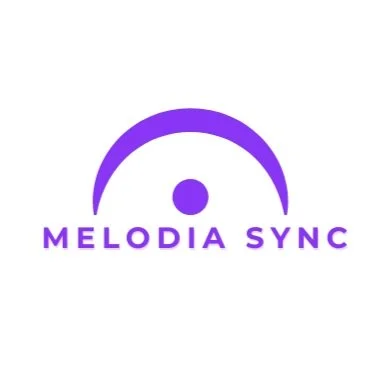Burnout vs. Depression: What's the Difference and Why Does It Matter?
Imagine this: you wake up each morning, exhausted before the day even begins. Tasks that used to be manageable now feel impossible. Your energy drains away quickly, replaced by a lingering sense of dread. Is it burnout, or could it be depression? Understanding the difference is crucial for finding the right path toward recovery. Let's explore what science says about these two closely related, yet distinctly different conditions.
Burnout and Depression: Conceptual Similarities and Differences
Burnout and depression share many symptoms, like fatigue, irritability, and trouble concentrating. Both arise from stress, and both profoundly affect your mental health and performance. However, they are not the same.
Burnout typically results from chronic workplace stress, characterized by:
Exhaustion (feeling constantly drained)
Cynicism or detachment from work
Reduced professional efficacy
Depression, on the other hand, is broader and can arise from various sources. It involves:
Persistent sadness or hopelessness
Loss of interest in most activities (anhedonia)
Feelings of guilt or worthlessness
Physical symptoms like sleep disturbances or appetite / body weight changes
Thoughts of death and suicidal ideation
While burnout is seen as an occupational phenomenon, depression is recognized as a clinical mental health disorder.
The Dove vs. Hawk Hypothesis: A New Lens on Stress Responses
One fascinating framework that may help us understand the difference between burnout and depression is the Dove vs. Hawk hypothesis, a concept from evolutionary biology applied to mental health.
Doves are thought to be more sensitive to environmental stress. They are highly reactive, prone to anxiety and hypervigilance, but more socially attuned and flexible. Their stress response is marked by heightened parasympathetic activity. Burnout, especially in highly empathic individuals in helping professions, may align more with this profile.
Hawks, on the other hand, tend to be more aggressive and less sensitive to social cues. They respond to stress with persistent sympathetic activation, and their coping style involves dominance or withdrawal. This profile has been linked more closely to the biology of depression, particularly when stressors become inescapable.
This framework helps explain why some people experience burnout under chronic social stress, while others may spiral into clinical depression. It also supports the idea of personalized mental health interventions: different nervous system profiles may benefit from different types of support.
The Biology Behind the Symptoms
What happens in your body and brain when you're burned out versus when you're depressed? Research reveals some fascinating insights.
1. Heart Rate Variability (HRV)
HRV measures your autonomic nervous system's flexibility, essentially, how well your body handles stress.
In burnout, chronic stress often leads to reduced HRV due to persistent parasympathetic withdrawal. This makes you feel constantly tense, anxious, and exhausted.
In depression, reduced HRV is also common, but the impairment is usually more pronounced, often linked directly with cardiovascular risk.
Both conditions show HRV reduction, yet depression generally displays more profound physiological changes, possibly indicating deeper dysregulation.
2. Brain-Derived Neurotrophic Factor (BDNF)
BDNF is a protein critical for brain health, supporting neuron growth and connectivity.
Both burnout and depression show decreased levels of BDNF, but depression typically involves a more significant reduction. Lower BDNF contributes to impaired cognitive function and emotional regulation.
Interestingly, chronic occupational stress related to burnout specifically lowers BDNF, suggesting targeted neural impairment linked to prolonged workplace stress.
3. Hippocampal Volume
Your hippocampus, vital for memory and emotional regulation, can shrink due to prolonged stress.
In burnout, hippocampal changes might not be immediately visible but develop over extended periods of chronic workplace stress.
In depression, particularly long-term cases, hippocampal shrinkage is a hallmark, strongly correlated with severity and duration.
Overlapping Symptoms, Unique Pathways
Both burnout and depression involve chronic stress, yet their pathways diverge. Burnout often emerges slowly from sustained workplace pressures, while depression can develop from diverse triggers, like genetic predisposition, childhood adversity, or major life events.
Research also highlights the role of anxiety and rumination, constant worry or overthinking, in both conditions. Anxiety can exacerbate symptoms, making it challenging to differentiate between burnout and depression clearly.
Why Distinguishing Them Matters
Recognizing whether you're experiencing burnout or depression isn't just semantics, it's crucial for appropriate treatment:
Burnout interventions typically emphasize reducing workplace stressors, promoting better work-life boundaries, and developing effective stress management practices.
Depression usually requires comprehensive approaches including psychotherapy, medication, and lifestyle adjustments.
Mislabeling burnout as depression (or vice versa) might lead to ineffective treatments and prolonged suffering. Accurate identification empowers better recovery.
How Can Your Brain Recover?
Fortunately, whether burnout or depression, your brain can heal thanks to neuroplasticity, your brain's remarkable ability to reorganize and form new connections. Recovery, however, isn't automatic, it needs active support:
Quality Sleep: Aim for 7-9 hours per night; sleep repairs the brain and restores cognitive functions.
Regular Physical Activity: Even short walks boost BDNF and improve brain function.
Mindfulness and Breathing Exercises: Practices like meditation and box breathing improve HRV and reduce anxiety.
Social Connection and Hobbies: Engage in activities you love to rebuild emotional resilience and joy.
Supporting Your Brain with Innovative Technology
MelodiaSync leverages EEG-guided binaural beats, directly helping your brain recover by:
Enhancing neural connectivity
Reducing stress and anxiety
Promoting relaxation and focus
Our technology monitors real-time brain activity, delivering personalized audio experiences that gently guide your brain towards optimal states for healing and growth.
You're Not Alone, And You're Not Stuck
Whether facing burnout or depression, remember you're not stuck. Your brain's health is within your control. Identifying your symptoms accurately, understanding their biology, and taking targeted steps towards recovery makes a profound difference.
At MelodiaSync, we believe recovery isn't just possible; it's attainable with the right tools and support. Reclaim your mental clarity, because your brain deserves better.
Disclaimer: This blog post is intended for informational purposes only and does not constitute medical advice. Please consult with a qualified healthcare professional for any health concerns or before making any decisions related to your health or treatment.




